According to reporter Emilia Şercan (link in Romanian), some 42 pages of Ciucă’s 38-page 2013 dissertation from the National Defense University in Bucharest were plagiarized from outside sources.
Ciucă, for his part, denied the plagiarism and said that his dissertation was legitimate. However, prosecutors began to build a copyright infringement case against Ciucă. The case made it before the Bucharest Court of Appeal, which struck down the claims involving Ciucă’s work.
Theoretically, this should have been the end of the plagiarism story. With his name cleared and his degree safe, the matters should be resolved. However, it’s really just the beginning.
According to an investigation by local news outlet G4Media, the process through which Ciucă’s work was cleared was anything but fair or impartial.
According to G4Media, the case was supposed to go before a random panel at the court, however, through a process known as “cover”, the case was “directed” toward a judge with strong affiliates with Ciucă, raising serious questions about the impartiality of the proceedings.
The process worked by first attaching the case to an unrelated legal dispute. A woman was appealing a decision against the Immigration Directorate and was going before a judge friendly to Ciucă.
Rather than going to a random panel, Ciucă’s case was appended to that unrelated matter so that the judge would be known. Then, the original case was reassigned, leaving only Ciucă’s case.
The judge in question, Marius Iosif, resigned shortly after the revelations came to light. Furthermore, someone entered the court system and deleted the evidence in question, though G4Media retains screenshots.
The investigation marks a stark blow to the efforts to improve the country’s reputation when it comes to plagiarism and academic integrity. However, it is far from the only blow that’s happened this year.
Romania’s Ongoing Battles
Romania’s high-profile battles with plagiarism are not new. In fact, the struggle has been going on for more than a decade.
In 2012, Prime Minister Victor Ponta and several of his ministers faced allegations that they had committed plagiarism in their academic work. Though several of the ministers resigned, Ponta held on to his position until losing in an election. However, he did eventually give up his doctorate though he continued to deny wrongdoing.
Since then, academics in the country have been working diligently to try and turn around the country’s reputation as being easy on plagiarism. Those efforts have born significant fruit when it comes to reducing plagiarism and other academic integrity violations taking place in the classroom. This is evidenced by lowering pass rates for certain exams and greater awareness of the issues.
However, the country has still had significant trouble with dealing with previous plagiarism, such as what Ciucă is accused of.
Unfortunately, dealing with those previous cases of plagiarism just got much more difficult in Romania.
Last month, the country’s Constitutional Court handed down a ruling greatly limited when the Ministry of Education can revoke doctoral degrees. Under this ruling, degrees can only be revoked one of two ways.
Prior to When it has “Legal Effects”: According to experts in the country, this would have to take place before the Minister of Education has signed the order awarding the degree.
With a Definitive Court Verdict: This case can only be filed by the educational institution that awarded the degree or by the person plagiarized. Furthermore, this legal action must be brought within one year of the degree being awarded and could take many years to unfold.
In short, it is nearly impossible to revoke a doctorate in Romania under these rules. This means individuals like Ciucă are pretty much safe from ever losing their degree, no matter how much plagiarism was in their dissertation.
In the midst of this, Romanian students are continuing to work and study, even as their country’s academic reputation is repeatedly ruined on the international stage.
The Real Losers
The ones that suffer the most here are the students working hard inside Romania’s universities.
Though academics in the country are making great strides within the academic system, the courts have made it clear that the degrees already awarded are likely to stay there, regardless of how significant the issues are with them.
Combine this with the blatant corruption in the Ciucă case, and the message is pretty clear: The Romanian government has decided to tolerate plagiarism.
This is very different from most countries. In the most of the rest of the world, the government leaves these issues to academia. In the United States, for example, courts are very reluctant to get involved in cases of academic dishonesty, preferring to leave such matters to the academic tribunal system.
However, here, the government is getting involved very directly and using the courts to do so. This backs academics into a corner, making it so that they can only focus on current students and can do nothing to correct mistakes and wrongdoings of the past.
This means that stories like Ciucă aren’t going to just capture headlines, but remain black eyes on the country’s academic system for decades to come. However, this isn’t likely to stop those stories because, as we’ve seen in the United States, political opponents love to use plagiarism scandals as a means to discredit opponents.
So, it is very likely that plagiarism stories from Romania will continue to grab international headlines, but academics within the country will have little recourse to protect the country’s reputation or integrity.
To the students currently studying in the country, that is a significant blow, as the government seems not to care if it cements the nation’s reputation as a haven for plagiarists.
Bottom Line
One of the key purposes of academic integrity is to ensure that students have done the required work and obtained the required knowledge to receive the degrees they have.
Unfortunately, when an institution earns a reputation for tolerating plagiarism, it casts doubt on all the degrees it has awarded. This is a problem not just on a school level, but on a national one.
Though other nations, such as Germany, have had spates of high-profile plagiarism scandals, Romania is unique in that the government and the courts are actively and publicly protecting plagiarists.
Where Germany’s international reputation remains strong despite the high-profile plagiarism scandals, Romania has gone on the public in trying to protect plagiarists.
While it is true that plagiarism scandals have caused more than some chaos, trading integrity for stability doesn’t actually do any good. Even if degrees aren’t revoked, the allegations will still be damaging and the harm done to the reputation of the schools in the country will be severe.
My thoughts are with the teachers and administrators who are working to address academic integrity in Romania’s school. They face a long, uphill battle, and their nation’s government is not making it any easier.
Consulting Services
Follow us
rss
email-alt
youtube
Disclaimer
I am not a lawyer. I am just a legally-minded Webmaster/Writer frustrated with the plague of plagiarism online and doing something about it.
Newsletter
Popular Posts
Kevin Kruse and the Peak Political Plagiarism ScandalJune 27, 2022
The Perfect Plagiarism Apology… Which I am Yet to SeeAugust 7, 2014
What Winnie-the-Pooh Lapsing into the Public Domain Really MeansJanuary 5, 2022
The John Hughes Plagiarism ScandalJune 21, 2022
How to Write a Copyright NoticeNovember 8, 2011
Recent Posts
How Romania’s Prime Minister was “Cleared” of PlagiarismJune 29, 2022
3 Count: GreenleafJune 29, 2022
Who the Copyright Claims Board May Help the MostJune 28, 2022
Featured

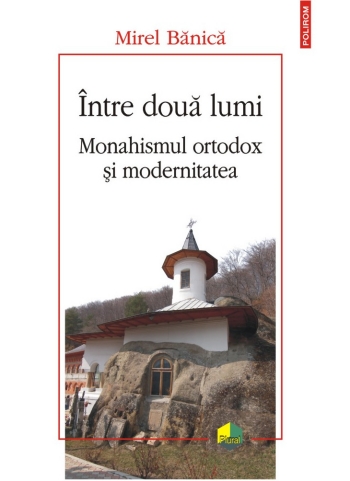
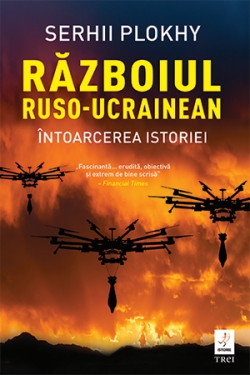
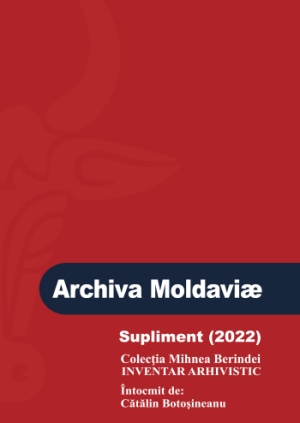
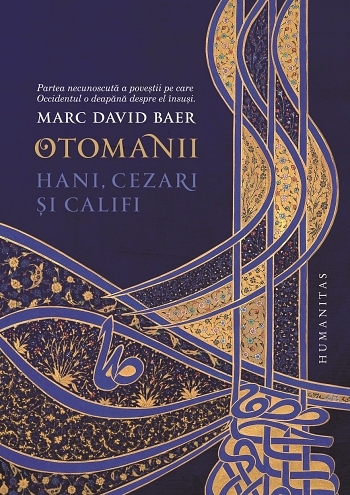
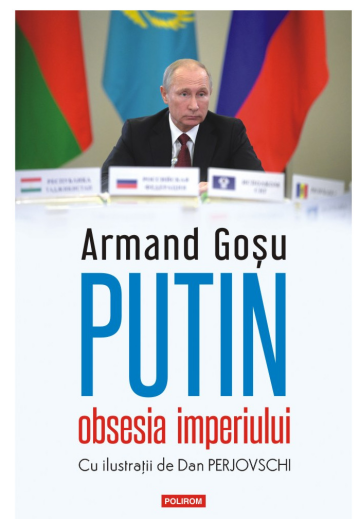
 Aikido cu mintea si corpul coordonate. Invatati cum sa va relaxati si cum sa va pastrati calmul in conditii de stress.
Aikido cu mintea si corpul coordonate. Invatati cum sa va relaxati si cum sa va pastrati calmul in conditii de stress. 
Toate bine scrise si explicite! Dar dv. credeti ca intereseaza pe cineva din guvernanti, inclusiv min.educ si min. al cercetarii. Nici vorba! Legile educ si cercet.vechi si carpite cu tot felul de hg.,ord.min, etc. Toata cercetarea se ocupa de digitalizare si sunt scoase posturi cu zecile, aceasta digitalizare trebuia trecuta la min.comunicatiilor.
Totul porneste de la baza din coruptia conduc.de doctorate, referenti, scoli doctorale, comisii din minister, directori din institute cercet. Exista si oaze de onestitate dar tot mai putine. Totul trebuie resetat de jos pana sus, dar nu doreste nimeni sa o faca, daca toata lumea este multumita!
Mda… generalul desertului. Lipsesc un colonel al aperitvului și un maior al supeului și o poate pune de o juntă.
Suntem in razboi, acum nu este timp pentru asa ceva.
„… am ajuns de rasul lumii si ciuca batailor de joc!”
Vorba aia, pe mine sa nu contati.
Caci eu ma intreb unde sint # Rezist ori # Va vedem?
Asa cum „Iarna nu-i ca vara” nici Iohannis nu-i ca Basescu.
Domnule Fumurescu, nu inteleg dece va mirati?
Avem ca Presedinte un om dovedit de Justitie ca a falsificat acte pentru a intra in posesia unei case.
Avem un Prim ministru plagiator. Si care, dupa ce a iesit la pensie din Armata, a declarat ca a fi seful Statului Major al Armatei este onoarea suprema, asa ca niciodata nu va intra in politica.
Si inca o intrebare: undi ni sint cei ce strigau din toti bojocii „Jos labele de pe Justitie”?
deci vinovat ca se plagiaza in Romania nu sint de vina profesorii indrumatori , Universitatile , autorii plagiatelor , ci presedintele tarii Iohannis ….. Am inteles.
Desi se pare ca nu ai citit comantariul meu, te fortez putin: aminteste-ti ce declara Iohannis despre dottore Ponta, si ce spune acum . Despre cel ce declara ca mai mare onoare decit a fi Seful Statului Major al Armatei Romaniei, nu exista nimic. Si ca niciodata nu va intra in politica.
Incearca!
@ Victor L: Distinse domn, am senzația că domnului Fumurescu îi este rușine de situația urât mirositoare accelerată la maxim de Președinte, PM, tot felul de miniștri neaveniți și instituții ce execută numai ordine venite de sus în jos. Domnul Fumurescu nu se miră. Se rușinează, numai.
Nu vă mai întrebați de #Rezist și de #Vă vedem. Nu-i vom mai vedea în piață. Câte bulane, gaze lacrimogene, gloanțe de cauciuc să mai ia? Nu credeți că au înțeles că au ieșit degeaba? Iohannis, după mine, în august 2018 a jucat pe aceeași carte cu Dragnea, cu Carmen Dan și cu Dăncilă. Unde să mai iasă tinerii când au înțeles că în țara asta zarurile au fost aruncate pentru comuniștii de după comuniști.
Ați observat că dl „doctor în științe militare” la două-trei cuvinte scoate din gîtlej cîte un „ă” academic? Și vorbește liber… citind de pe foaie. O fi pentru exactitatea informației.
Atunci cînd stăpînul citește silabisind ce pretenții să avem de la slugă? Lupta cu cititul e grea, mai scapă omu’ cîte un ”ăăă…”, îl mai trec nădușelile, deh, face și el ce poate, da’ e lumea rea… În definitiv el e ”leul deșertului”, cum îl pupau în cur niște ziariști angajați să-i facă un PR corespunzător, nu e pe partea cu intelectualii ăștia cîrcotași, chiar nu știu de ce mai stă p-acilea și nu se duce pe pustii de unde a venit.
Daca si in domeniul militar era la fel de bine informat, e clar: in Romania nu se produce motorina.
https://www.youtube.com/watch?v=PrI7R7QlDZM
Zau, o asemenea gogomanie cere o demisie!
Am primit acest clip acum câteva zile si nu mi-a venit sa cred. Pentru un moment am crezut ca este un deep fake. Din pacate este adevărat. Un prim ministru se ocupa cu importul a trei virgula ceva tone de produse petroliere? De ce nu tace si sa-i lase pe alți sa vorbească?
Cred ca deja au fost doborâte standardele Veorica Dancila.
Acum 2 zile se aștepta marea evaluare a miniștrilor, dar se pare ca toți au ieșit fruntași pe ramura.
Daca un judecator se pronunta asupra unei lucrari stiintifice, propun ca anul acesta lucrarile de admitere la drept sa fie notate de cei de la agronomie.